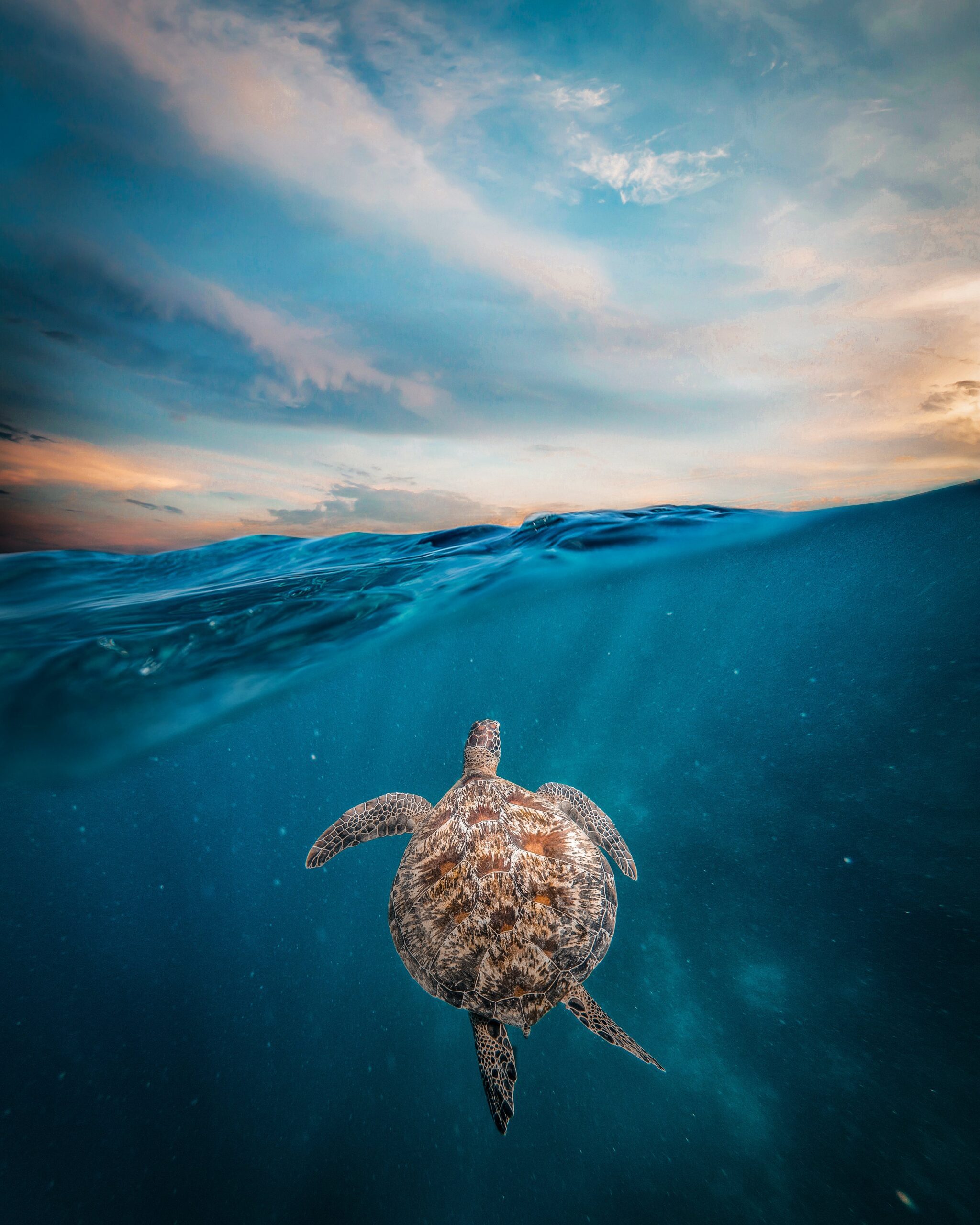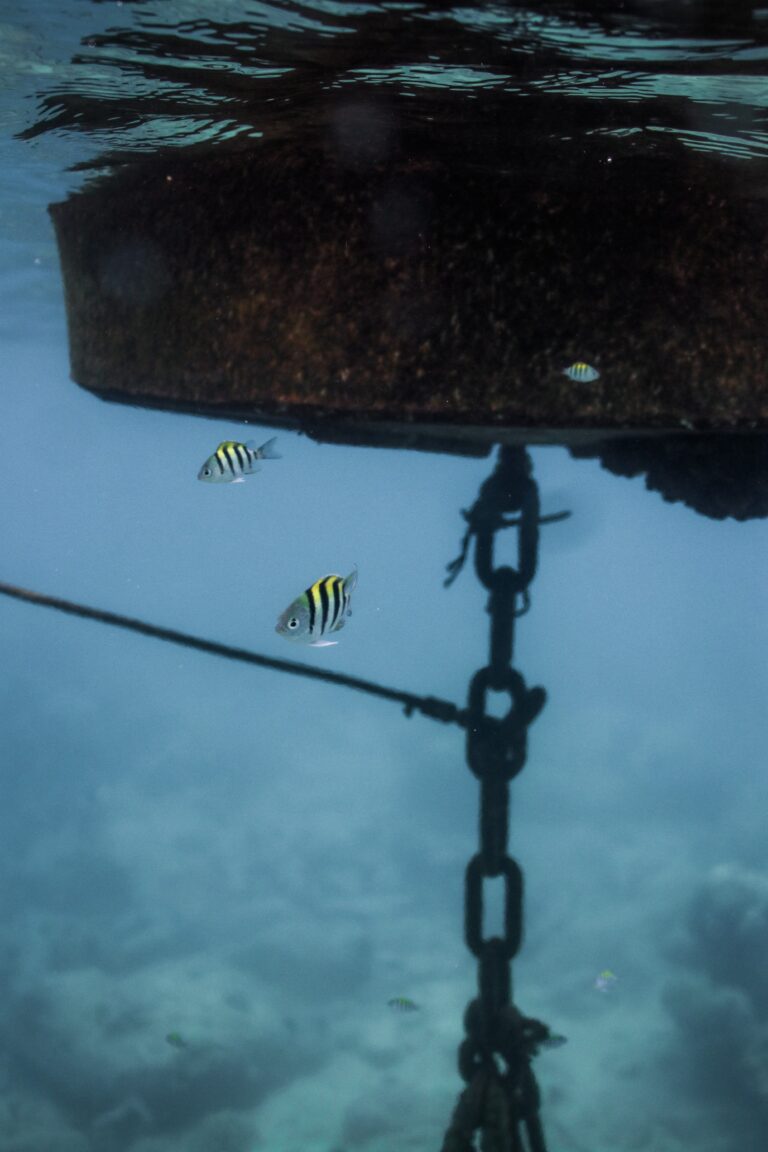Introduction
Beneath the shimmering surface of the world’s oceans lies not only a vast expanse of biodiversity but also a potential economic powerhouse known as the Blue Economy. This symbiotic relationship between economic growth and ocean resources, however, requires a delicate balance. In this exploration, we delve into the impact of ocean conservation on the flourishing Blue Economy, highlighting the critical need to preserve marine ecosystems for sustained economic prosperity.
Challenges Threatening Marine Ecosystems:
The world’s oceans face a myriad of challenges that jeopardize their delicate ecosystems. Pollution, overfishing, climate change, and habitat destruction are among the key culprits contributing to the deterioration of marine environments. Plastic pollution, in particular, poses a severe threat, with millions of tons of plastic waste entering the oceans annually, endangering marine life and ecosystems. Rising sea temperatures and ocean acidification, linked to climate change, further exacerbate the vulnerability of marine species and disrupt the intricate balance of underwater ecosystems. Addressing these challenges requires concerted global efforts and innovative solutions to preserve the health and sustainability of our oceans.
Ongoing Conservation Initiatives on a Global Scale:
Despite the daunting challenges, numerous international organizations, governments, and NGOs are actively engaged in marine conservation efforts. Initiatives like the Global Ocean Alliance and the High Level Panel for a Sustainable Ocean Economy bring together nations to develop and implement strategies for sustainable ocean management. Marine protected areas (MPAs) are being established worldwide to safeguard critical habitats and provide refuge for vulnerable species. Additionally, projects focused on sustainable fisheries management, such as the Ocean Health Index, aim to balance human needs with the preservation of marine ecosystems. Collaborative efforts are crucial to achieving meaningful progress, emphasizing the importance of global cooperation in the face of shared environmental threats.
Role of Technology and Innovation in Advancing Ocean Conservation:
Technology and innovation play a pivotal role in advancing ocean conservation efforts. Satellite technology, for instance, enables the monitoring of vast ocean areas, helping detect illegal fishing activities and track changes in sea surface temperatures. Artificial intelligence and machine learning applications assist in analyzing large datasets, providing valuable insights into marine biodiversity, migration patterns, and ecosystem health. The development of biodegradable materials and innovative waste management technologies addresses the issue of plastic pollution, offering sustainable alternatives to traditional materials. Drones and underwater robotics enhance our ability to explore and study the depths of the ocean, facilitating research and conservation efforts in previously inaccessible areas. Embracing these technological advancements is essential for implementing effective and adaptive strategies to protect and preserve our oceans for future generations.
Economic Impact of Healthy Oceans on Fisheries
The health of our oceans plays a crucial role in shaping the economic landscape of fisheries. Sustainable fisheries are the backbone of the Blue Economy, contributing significantly to global economies. Healthy oceans support robust marine ecosystems, ensuring the availability of diverse fish species. This, in turn, maintains a steady supply for the fishing industry, preventing overexploitation and stock depletion.
A thriving marine environment enhances the resilience of fisheries, leading to increased yields and economic gains. As oceans maintain a delicate balance, their health directly influences the abundance and diversity of fish populations. This balance, when maintained through sustainable practices, safeguards the long-term economic viability of fisheries, providing a foundation for the prosperity of communities dependent on fishing activities.
The Pivotal Role of Sustainable Fisheries in the Blue Economy
Sustainable fisheries are the linchpin of the Blue Economy, a concept that emphasizes the economic potential of the world’s oceans. By adopting responsible and environmentally conscious fishing practices, the Blue Economy promotes the harmonious coexistence of economic development and marine conservation. This approach ensures that fisheries continue to thrive, supporting livelihoods and fostering economic growth without compromising the health of ocean ecosystems.
The Blue Economy recognizes that sustainable fisheries not only contribute to food security but also create employment opportunities, drive innovation, and attract investments. By prioritizing responsible resource management, the Blue Economy aligns economic prosperity with the preservation of marine biodiversity, laying the foundation for a balanced and resilient maritime economy.
Economic Benefits of Well-Managed Fisheries and Aquaculture
Well-managed fisheries and aquaculture operations yield a plethora of economic benefits. Sustainable management practices not only maintain fish populations but also contribute to the stability of the entire value chain. Predictable and ample fish stocks reduce market volatility, ensuring a steady supply for both local and international markets.
Furthermore, well-managed fisheries support the growth of the aquaculture sector, which plays a complementary role in meeting the increasing global demand for seafood. Sustainable aquaculture practices alleviate pressure on wild fish stocks, enhancing the overall economic sustainability of the industry. This balanced approach secures the economic prosperity of coastal communities and promotes responsible consumption.
Examples of Successful Sustainable Fishing Practices and Their Positive Impact
Numerous examples worldwide showcase the success of sustainable fishing practices and their positive impact on local economies. Community-based fisheries management, where local communities actively participate in decision-making processes, has proven effective in ensuring sustainable resource use. This approach empowers local stakeholders, fostering a sense of responsibility and ownership that contributes to the long-term success of fisheries.
Technological innovations, such as the implementation of satellite technology for monitoring fishing activities, have also played a pivotal role in promoting sustainability. These tools enable real-time tracking of fishing vessels, aiding in the prevention of illegal, unreported, and unregulated (IUU) fishing. By curbing IUU activities, these technologies contribute to the conservation of fish stocks and the overall economic stability of the fisheries sector.

The Economic Value of Coastal and Marine Tourism
Coastal and marine tourism play a pivotal role in global economies, contributing significantly to the revenue of many nations. The allure of pristine beaches, diverse marine life, and vibrant coastal communities attracts millions of tourists annually. These destinations not only generate income through tourism-related activities but also stimulate local economies by creating job opportunities in hospitality, transportation, and various service industries.
Investing in sustainable coastal tourism is crucial for long-term economic prosperity. By preserving the natural beauty of coastal areas, destinations can ensure a steady influx of tourists seeking an authentic and untouched experience. Sustainable practices, such as responsible waste management and conservation efforts, not only protect the environment but also contribute to the appeal of these destinations, ultimately sustaining the economic benefits derived from coastal and marine tourism.
Linking Healthy Marine Ecosystems to Tourism Revenue
The health of marine ecosystems is directly linked to the success of coastal tourism. Vibrant coral reefs, thriving fish populations, and pristine coastal landscapes are essential for attracting visitors seeking memorable and enriching experiences. Tourists are increasingly drawn to destinations that prioritize environmental conservation and responsible tourism practices.
Governments and local communities must collaborate to implement conservation initiatives that safeguard marine ecosystems. By establishing marine protected areas and promoting responsible tourism practices, destinations can maintain the biodiversity that forms the backbone of their tourism industry. In doing so, they not only preserve the natural wonders that attract tourists but also secure a sustainable source of revenue for future generations.
The Role of Oceans in Natural Disaster Prevention and Coastal Protection
Beyond their appeal to tourists, oceans play a crucial role in natural disaster prevention and coastal protection. Healthy coastal ecosystems, including mangroves and coral reefs, act as natural buffers against storms and tsunamis. Mangroves, for example, serve as a barrier that reduces the impact of waves and protects coastal communities from erosion and flooding.
Investing in the preservation and restoration of these natural defenses is an investment in the long-term resilience of coastal areas. By recognizing the intrinsic link between healthy oceans and disaster prevention, governments and communities can build a more sustainable future that prioritizes both the well-being of the environment and the safety of coastal populations.
Renewable Energy from the Deep Blue
Harnessing the vast potential of ocean energy has emerged as a promising frontier in the pursuit of sustainable and renewable resources. The deep blue seas offer a plethora of opportunities for generating clean energy, tapping into the inexhaustible power of wind, tides, and waves. Offshore renewable energy technologies have seen significant advancements, positioning them as key contributors to a greener future.
Offshore wind energy, in particular, stands out as a frontrunner in the renewable energy landscape. The expansive and consistent winds over the open seas provide a robust source of power. Offshore wind farms are being developed worldwide, offering the potential to generate substantial electricity while reducing reliance on traditional fossil fuels. As technology continues to evolve, offshore wind farms become increasingly efficient, making them a reliable and economically viable source of renewable energy.
Economic Benefits of Investing in Offshore Wind, Tidal, and Wave Energy
Investing in offshore wind, tidal, and wave energy not only contributes to environmental sustainability but also unlocks a myriad of economic benefits. The development and maintenance of offshore energy projects create employment opportunities, driving economic growth in coastal regions. Furthermore, the expansion of the renewable energy sector attracts investments, fostering innovation and technological advancements.
Offshore wind farms, in particular, have proven to be lucrative investments, offering long-term returns. Governments and private entities alike are recognizing the economic potential of these projects, leading to increased funding and support. Additionally, the growth of the offshore energy industry stimulates related sectors, such as manufacturing, logistics, and research, creating a ripple effect that positively impacts the overall economy.
Balancing Energy Needs with Environmental Sustainability
While the prospect of harnessing ocean energy is exciting, it is crucial to balance our energy needs with environmental sustainability. Responsible planning and implementation of offshore energy projects are imperative to mitigate potential ecological impacts. Environmental impact assessments, stakeholder engagement, and adherence to strict regulations are essential components of ensuring that the benefits of renewable energy do not come at the expense of the marine ecosystem.
Innovations in technology and engineering play a pivotal role in minimizing the environmental footprint of offshore energy installations. Continuous research and development efforts are directed towards enhancing the efficiency of energy extraction methods while minimizing disturbances to marine life. Striking a delicate balance between meeting energy demands and preserving the delicate marine environment is essential for the long-term success of ocean-based renewable energy initiatives.
Video Credit: Social Science School
FAQs
Q. Can ocean conservation truly contribute to economic growth? A
A. Absolutely. Sustainable ocean management ensures the longevity of industries reliant on marine resources, fostering economic growth.
Q. What role do governments play in balancing conservation and economic interests?
A. Governments play a crucial role in enacting policies that regulate industries, ensuring sustainable practices and conservation efforts are prioritized.
Q. Are there examples of countries successfully balancing the blue economy and conservation?
A. Countries like Norway and Australia have effectively balanced economic growth with stringent conservation measures, serving as inspiring models.
Q. How can individuals contribute to ocean conservation and the blue economy?
A. Individuals can support sustainable practices, engage in responsible tourism, and advocate for policies that prioritize both conservation and economic growth.
Q. What industries are most impacted by sustainable ocean management practices?
A. Industries such as fisheries, tourism, and renewable energy are significantly impacted, benefiting from sustainable ocean management practices.
Q. Are there financial incentives for businesses adopting sustainable practices in the blue economy?
A. Many governments and international organizations offer financial incentives to businesses embracing sustainable practices, encouraging a shift toward environmentally friendly approaches.
Conclusion
As we navigate the uncharted waters of the Blue Economy, it becomes evident that the prosperity of our global economy is intricately tied to the health of our oceans. Ocean conservation isn’t merely an environmental concern; it’s an economic imperative. The symbiosis between a thriving Blue Economy and a well-preserved marine environment is clear. As we move forward, let us recognize the importance of sustainable practices, innovative technologies, and global collaboration in nurturing our oceans. In doing so, we not only ensure the growth of the Blue Economy but also safeguard the invaluable treasures that lie beneath the waves for generations to come.
UP NEXT
The Threat of Ocean Conservation Greenwashing: Ensuring Authentic Commitment



